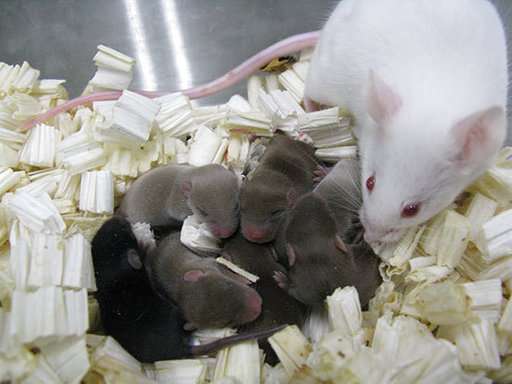After 9 months in space, mouse sperm yield healthy mice

After nine months in space, mouse sperm has yielded healthy mice, Japanese scientists reported Monday.
The freeze-dried sperm samples were launched in 2013 to the International Space Station and returned to Earth in 2014. The intense radiation of space caused slight DNA damage to the sperm. Yet, following in vitro fertilization on the ground, healthy offspring resulted. The baby mice grew into adults with normal fertility of their own.
The researchers—led by Sayaka Wakayama of the University of Yamanashi—said it's a step toward reproducing other mammals, even humans, using space-preserved sperm. They envision missions lasting several years or multiple generations, during which assisted reproductive technology might be used for domestic animals and people, too.
The findings were published in the Proceedings of the National Academy of Sciences.
Previous developmental studies in space have involved, among other things, fish and amphibians. Mammals are more difficult to maintain and handle in space, and so testing, by comparison, has been limited. More extensive testing on sperm preservation is needed in space, according to the researchers.
Besides looking ahead to long-term space crews and societies, the researchers see other reasons for saving sperm in space, including in the event of disasters on Earth. The moon would be ideal for underground sperm storage, they noted, in particular lunar lava tubes because of "their very low temperatures, protection from space radiation by thick bedrock layers, and complete isolation from any disasters on Earth."
More information: Sayaka Wakayama el al., "Healthy offspring from freeze-dried mouse spermatozoa held on the International Space Station for 9 months," PNAS (2017). www.pnas.org/cgi/doi/10.1073/pnas.1701425114
Journal information: Proceedings of the National Academy of Sciences
© 2017 The Associated Press. All rights reserved.



















